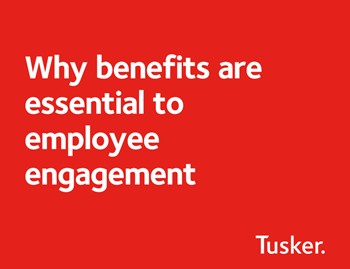One of the HR department's most important responsibilities is to ensure the business has sufficient capacity in the labor force to be productive and efficient.
That relies on effective workforce planning. One of the many elements of this is knowing when employees who are approaching retirement age are planning to stop work for good.
While it's perfectly understandable for managers to want to discuss this with their staff, you also need to be aware of some of the risks involved in broaching this subject. Taking the wrong approach could mean you offend or alienate your employees, or possibly even fall foul of age discrimination laws.
Compliance concerns
First and foremost, you need to be aware of the relevant rules and regulations around age discrimination and retirement in areas where you do business, to ensure you're not running the risk of non-compliance.
US legislators passed the Age Discrimination in Employment Act all the way back in 1967, while employers operating in the UK are subject to laws including the Employment Equality (Repeal of Retirement Age Provisions) Regulations 2011. This set of rules abolished the previous default retirement age of 65 and made it illegal for an organization to force a worker to retire at a particular age.
EU countries also abide by a comprehensive set of laws banning age discrimination in the workplace.
As well as ensuring your approach to discussing retirement with employees doesn't have any legal repercussions, it's important to frame the conversation in a positive and constructive way. Make it clear that you want to achieve the optimum outcome for the employee and that you're not only interested in looking out for the business.
Universal benefits
Productive conversations between line managers and employees about retirement can be beneficial for all parties.
Businesses need to plan ahead and make sure the skills and experience they're losing when long-term employees retire can be replaced, either through internal development or recruitment.
This is particularly important in industries struggling to attract young talent. Manufacturing, for example, languishes at the bottom of the list of sectors that hold strong appeal to millennials, research has shown.
From an employee perspective, most people approaching the end of their tenure in the full-time workforce will have already thought about retirement and would appreciate some support and information from their employer about the subject. Failing to address the issue at all could leave employees feeling unacknowledged and overlooked.
Navigating the conversation
It's clearly important to talk to older workers about their plans for retirement, so what steps can you take to make sure the discussion goes well?
Open the door for the employee to take the lead
One of the most useful things a manager can do is simply give the employee the opportunity to talk about retirement, if they're willing to do so. During an appraisal or one-to-one catch-up, you could bring up the subject and ask them if they've given it any thought.
If they haven't considered it and show little interest in talking about retirement, you should be wary of pressing the issue any further, since this could give the impression that you're trying to force them out.
However, if they respond by saying they’ve been giving the topic a lot of thought, it could be the ideal way to begin a proper conversation about how both the business and the individual can start planning for their retirement.
Introduce the subject in a group setting
Talking about things like pension saving and preparing for retirement in a group environment, with a wide range of ages present, can be a good way to ease pressure around these issues. It can also provide opportunities for older members of the workforce to discuss the subject without feeling singled out or targeted.
You might find that the participants in these sessions have already given a lot of thought to their retirement prospects, but haven't come forward to speak to their manager yet.
Another option is to meet with every member of staff individually to talk about their career development and hopes for the future. When you're talking to older workers, their thoughts on retirement are likely to come up naturally.
Start discussions early
You can get your employees familiar with the idea of preparing for retirement by starting the conversation early and making it a regular theme in your appraisal and review processes. This will give you time to lay the groundwork for constructive talks with individuals and to find the right tone in your internal messaging on this subject.
Make sure people know their manager's door is always open when they're ready to discuss this topic, and that the company's priority is to help them make a smooth and comfortable transition into retirement.
Being proactive in broaching this issue will also give you more time to acquire or develop the skills the business needs to stay productive and successful when key members of staff retire.
Access the latest business knowledge in HR
Get Access



Comments
Join the conversation...